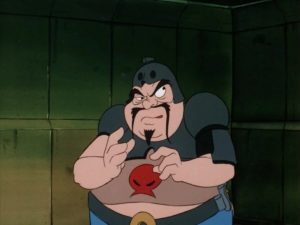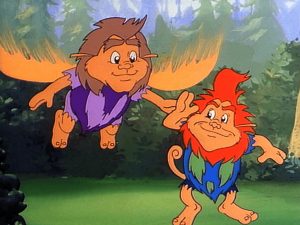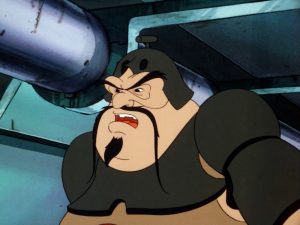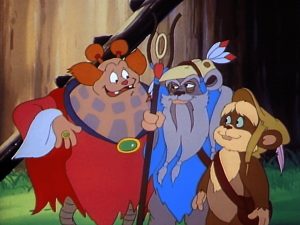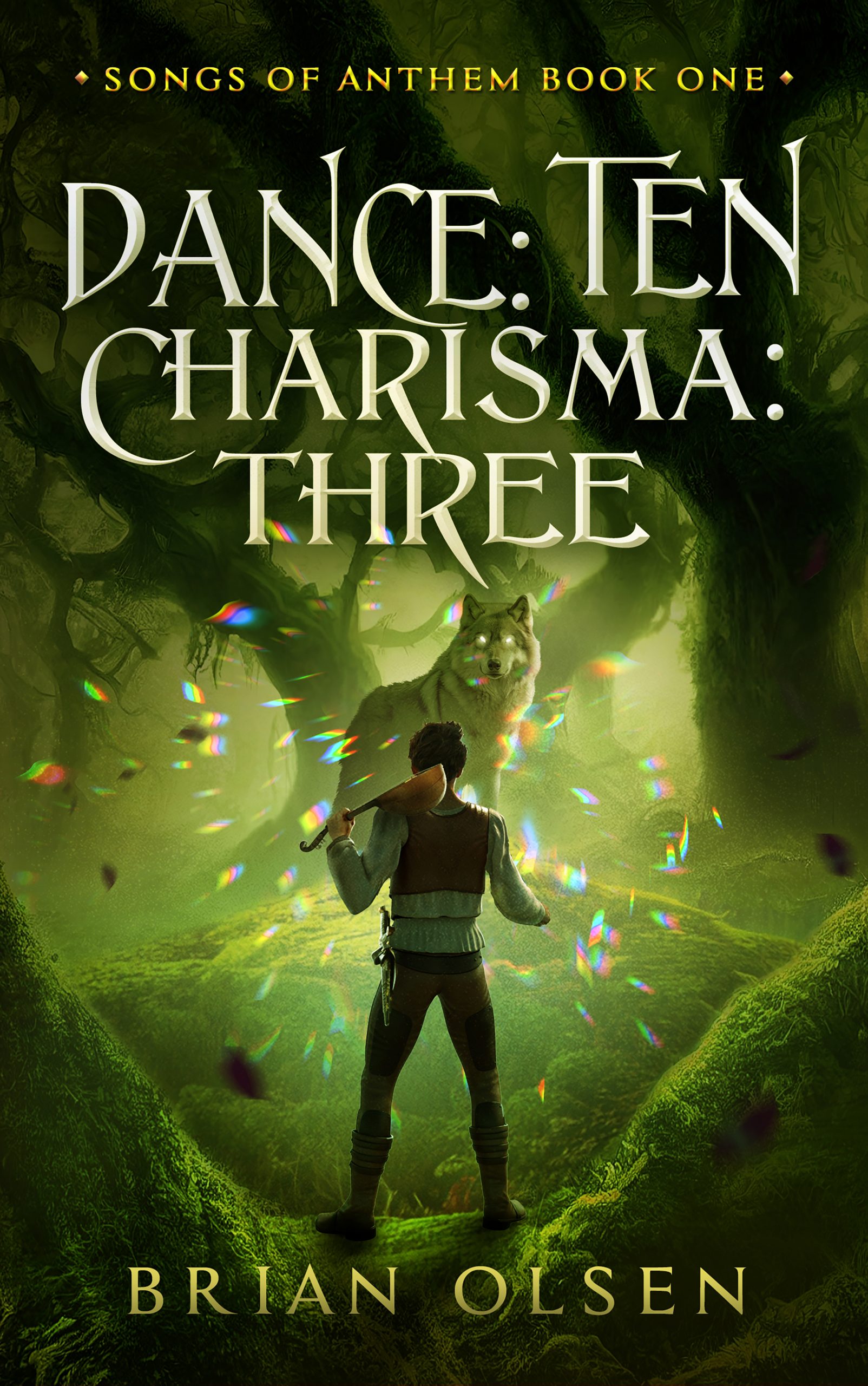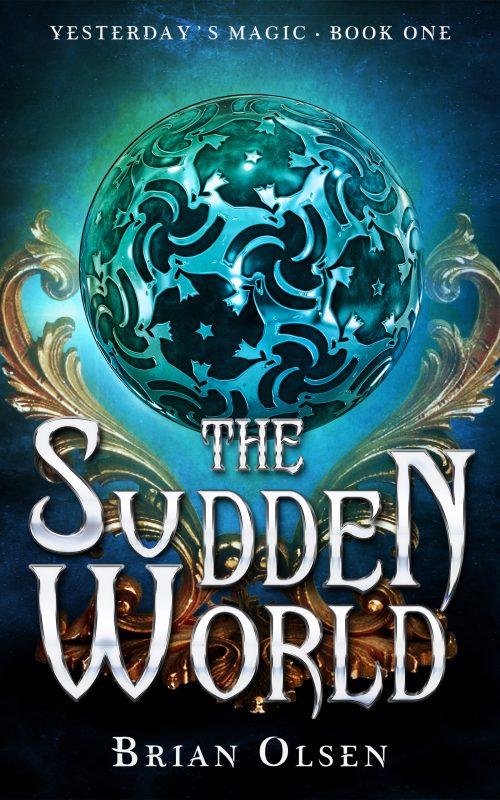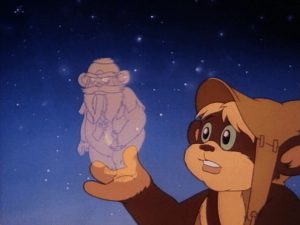
I give the Ewoks cartoon a lot of grief for indulging in continuity for its own sake., but after nine episodes, “Sunstar vs Shadowstone” finally brings us something new – resolution. The backstory of Morag, the Tulgah witch, and why she’s constantly trying to murder all the Ewoks is revealed. Not only that, but Morag’s story comes to a definitively final conclusion. It’s still a bit loose when compared to the ongoing story arc structure of Droids, but it’s a welcome change.
In short, two hundred years ago the Ewoks protected an extremely powerful magical object called the Sunstar Shadowstone. Morag stole it, but Shaman Logray, then in his prime, split the stone in two in his attempt to recover it. Morag kept the evil Shadowstone, while the Ewoks hid and protected the good Sunstar.
Side note: add another item to the long list of Ewok responsibilities. In addition to the day-to-day stressors of living on a moon where every other living thing wants to kill them, they’ve gotta keep their personal soul trees safe; they’ve got to protect the sunberry trees, without which they’ll die; every year they have to make a perilous journey to sprinkle Life Dust on the Tree of Light to keep the weather in check; and on top of all that they’ve got to hide the Sunstar from an evil witch who wants to eradicate them all for stealing it from her, even though she stole it from them in the first place. How did they have time to help the rebels fight the Empire?
Anyway, the kid Ewoks mess everything up as they always do, mostly by being preposterously mean to one another. Seriously, most episodes’ plots are kicked off because one of these rotten kids makes fun of another, who’s then motivated to prove them wrong by doing something colossally stupid. I don’t know why they stay friends. This time it’s Teebo’s turn; he’s signed on to be Logray’s apprentice; the others make fun of him for being bad at magic; he shows off and gets them all captured by Morag.
Logray comes to the rescue, of course, and the kids help defeat Morag and they all learn a Very Important Lesson about something or other. The end result is Logray kills Morag by turning her into stone. Her body collapses into rubble and the newly reunited Sunstar Shadowstone transforms her life force into a heart-shaped tree. It is a surprisingly bad-ass ending for an 80’s children’s cartoon. They don’t shy away from it – Morag is quite clearly dead, dead, dead, and the Ewoks are thrilled.
Honestly, it’s the most Star Wars this show has felt so far. I’ve talked before about how magic is real in this corner of the galaxy far far away, and while you can wave it all away as “the Force,” it never feels like that’s the writers’ intention. Endor’s magic doesn’t work much like the Force as we’ve come to know it – there’s plenty of telekinesis, sure, but there are also magic wands and shape-changing gnomes and invisibility soap. It’s not a mystical force that binds all things; it’s just abracadabra magic. They’re writing a children’s fantasy cartoon, and so magic is real. It doesn’t need any further explanation.
But it’s hard not to see a parallel between the Sunstar vs. the Shadowstone and the light side vs. the dark side. Even the importance of balance in the Force is reflected here, as the Sunstar and the Shadowstone were always meant to be one, keeping each other in check. Morag uses the Shadowstone/dark side, but craves to corrupt the power of the Sunstar/light side. This desire – and the anger, fear, and aggression that come with it, as Yoda warned us – ultimately leads to her destruction. No Force ghost for the unrepentant Tulgah witch, but otherwise it’s as thematically a perfect ending as any proper Star Wars villain could ask for.
Previous: Droids S1E8 – “The Revenge of Kybo Ren” (1985)
Next: Droids S1E9 – “Coby and the Starhunters” (1985)
